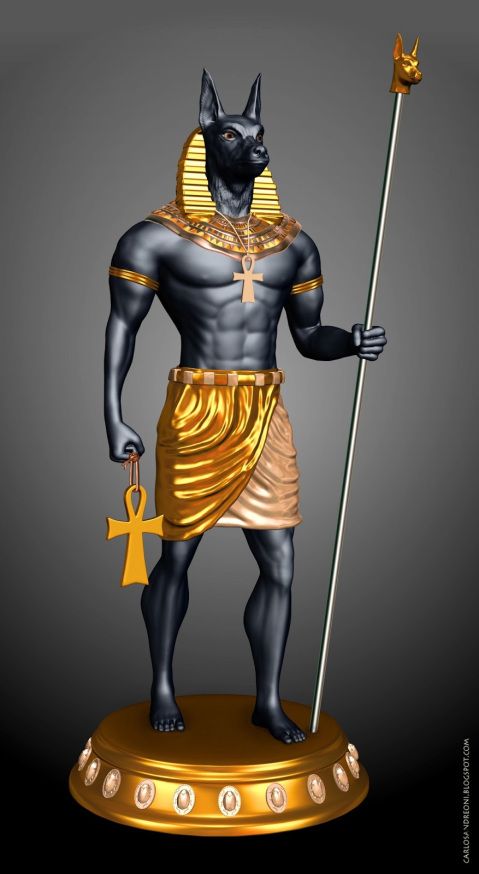In the pantheon of ancient Egyptian deities, Anubis stands as one of the most iconic and enigmatic gods, symbolizing the intricate belief system that guided the spiritual and religious practices of this venerable civilization. Revered as the god of mummification and the afterlife, Anubis played a crucial role in the ancient Egyptians’ journey from life to death.
Anubis, often depicted as a canine-headed figure, embodied the jackal, a creature associated with death and the mysteries of the underworld. His distinctive portrayal as a guardian of the deceased and a guide through the perilous realms of the afterlife cemented his status as an essential figure in Egyptian mythology.
One of Anubis’s primary responsibilities was overseeing the embalming and mummification processes, ensuring that the deceased’s soul could safely traverse the perilous journey to the afterlife. Artifacts and hieroglyphics found in ancient tombs frequently depict Anubis presiding over the weighing of the heart ceremony, a pivotal moment where the soul’s purity was judged against the weight of Ma’at’s feather—an embodiment of truth and justice.
Anubis’s role extended beyond mere judgment; he also served as a compassionate guide, leading the departed to the judgment hall of Osiris, the god of the afterlife. This intricate belief system underscored the Egyptians’ profound concern for the continuity of the soul and the quest for an eternal existence beyond physical death.
The enduring image of Anubis has left an indelible mark on popular culture, inspiring countless artistic interpretations, literature, and cinematic representations. His distinct visual presence, with the head of a jackal and the body of a man, evokes a sense of mystery and reverence, encapsulating the intricate symbolism and spiritual depth of ancient Egyptian beliefs.
The archaeological discoveries of temples, statues, and intricate burial practices dedicated to Anubis affirm the god’s paramount significance in the religious landscape of ancient Egypt. Temples dedicated to Anubis, such as the one at Saqqara, serve as tangible testaments to the veneration and rituals that once surrounded this revered deity.
As we peer into the annals of ancient Egyptian history, Anubis emerges not only as a god associated with death but also as a symbol of transformation and protection in the face of the unknown. The enduring legacy of Anubis persists, reminding us of the profound and complex beliefs that shaped one of the world’s most remarkable civilizations—a civilization that sought solace and guidance from the watchful gaze of the jackal-headed god in the journey beyond mortal life.

